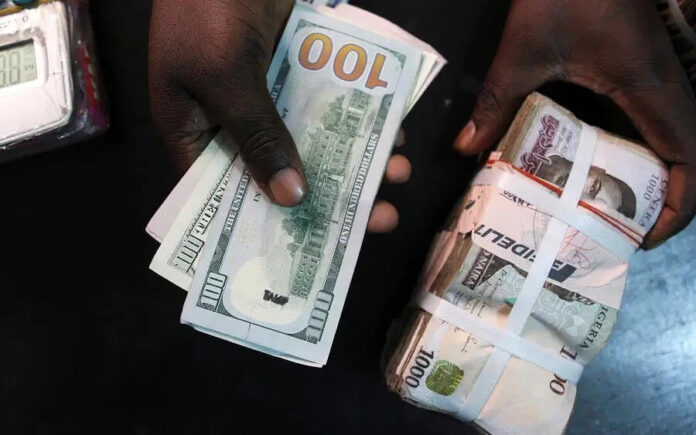Reflecting greater investor confidence, Nigeria’s foreign exchange market saw a spectacular recovery in July 2025 as nonbank businesses outperformed foreign portfolio investors (FPIs) for two weeks in a row. Data from the FMDQ show a 24 percent increase in July over the month before in total foreign currency revenues.
Although FPIs still contributed the most inflows at almost 45%, businesses showed increasing dominance in sustaining momentum. Encouraged by excellent carry trade chances and steady worldwide economic environment, offshore investors also boosted activity, with revenues going from $1.5 billion in June to $1.7 billion in July.
Even as the US dollar grew stronger in international markets, the Naira held steady around the N1,550 to the dollar range.
The News Chronicle understands that much of this renewed optimism is linked to recent reforms by the Central Bank of Nigeria (CBN). The apex bank has been clearing outstanding forex backlogs, introducing the Nigerian Foreign Exchange Code, and gradually unifying exchange rates to minimize arbitrage and volatility. These efforts have boosted transparency and attracted greater participation from both foreign and local investors.
Reaching $41.046 billion on August 20, the greatest level since late 2021, Nigeria’s foreign reserves also increased greatly. This follows last year’s reserves falling near $31 billion as a result of extensive efforts to stabilize the naira. At the most recent Monetary Policy Committee meeting, CBN Governor Olayemi Cardoso confirmed that changes are already paying off and that the bank acts as a catalyst for continuous reserve growth.
Currency traders worldwide paid great attention to the US market as anticipation grew before Federal Reserve Chairman Jerome Powell’s remarks. Investors lowered their predictions for imminent rate reductions; therefore, the US Dollar Index floated around 98.65. Market mood changed following better-than-predicted US manufacturing statistics, indicating economic resilience, lowering the chances of a September cut from 90 percent to nearly 70 percent.
As the Federal Reserve’s Jackson Hole yearly symposium is in session, experts anticipate Powell’s comments to offer more explicit direction on the direction of policy. For Nigeria, though, the major narrative is still the consistent comeback of confidence in its foreign exchange market, driven mostly by businesses that are currently shaping resilience and generating inflows.



